Agro-Pastoralists Educate Others
The Agro-Pastoralists Educate Others (APEO) programme extended opportunities for locally led research and advocacy to marginalised ethnic groups in South Omo. More than twenty small grants have been awarded on a competitive basis to allow local researchers to document the complex and little-know lives, livelihoods, culture and challenges of agro-pastoralist communities. Research topics, needs and advocacy messages have been determined by the researchers themselves.
A key programme legacy is the establishment of a sustainable network of agro-pastoralist researchers able to engage and communicate with policymakers and advocate for change at regional, national and international levels. With 2026 designated by the United Nations as the International Year of Rangelands and Pastoralism there is no better time to support a movement for the voices of people in South Omo to be heard.
Research Coalition: The Institute for Peace and Security Studies at Addis Ababa University, SOAS University of London, South Omo Theatre Company, Pastoralist Forum Ethiopia, Jinka University, South Omo Research Centre. This programme was made possible by an ISPF grant from SOAS University of London.
(All featured images by Bethel Kebede (Instagram: @bethel.k.art))
Girls accessing education in Arbore villages
Research by Arjan Hobora and Lemlem Oda.
This project documented the gendered inequalities in education among the Arbore, where, in some places, only 1 in 20 girls get to attend school. Interviews and focus group discussions were used to document girls’ experiences of education in two Arbore villages of Hamar woreda. Cultural values, dowry payment, and work requirements are factors preventing girls from gaining an education. The research points to the need for female-only hostels and for efforts to demonstrate to parents the benefits of sending their daughters to school.
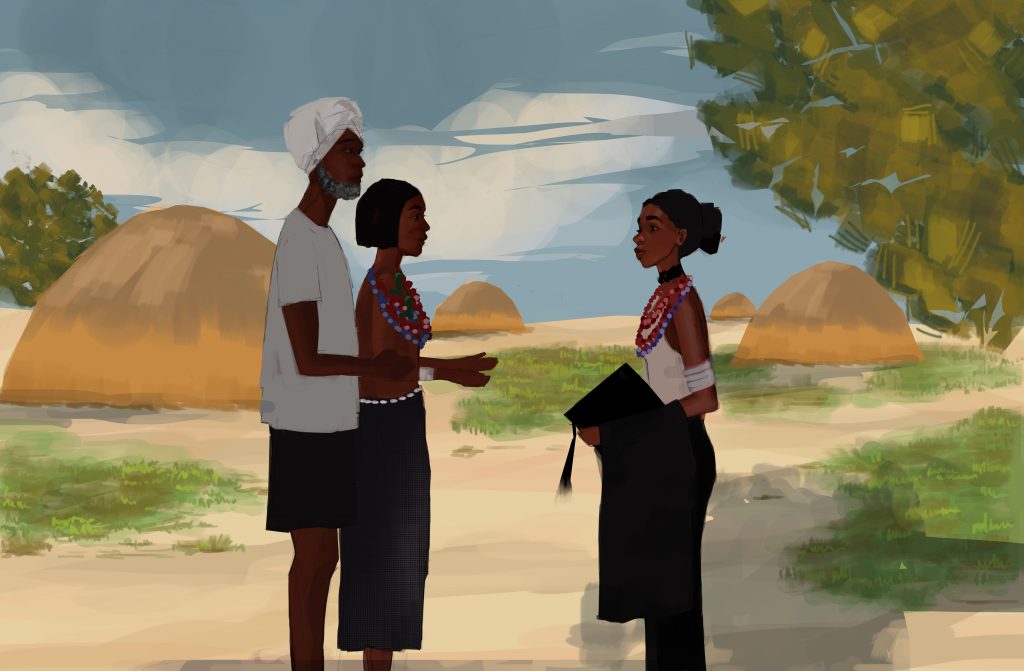
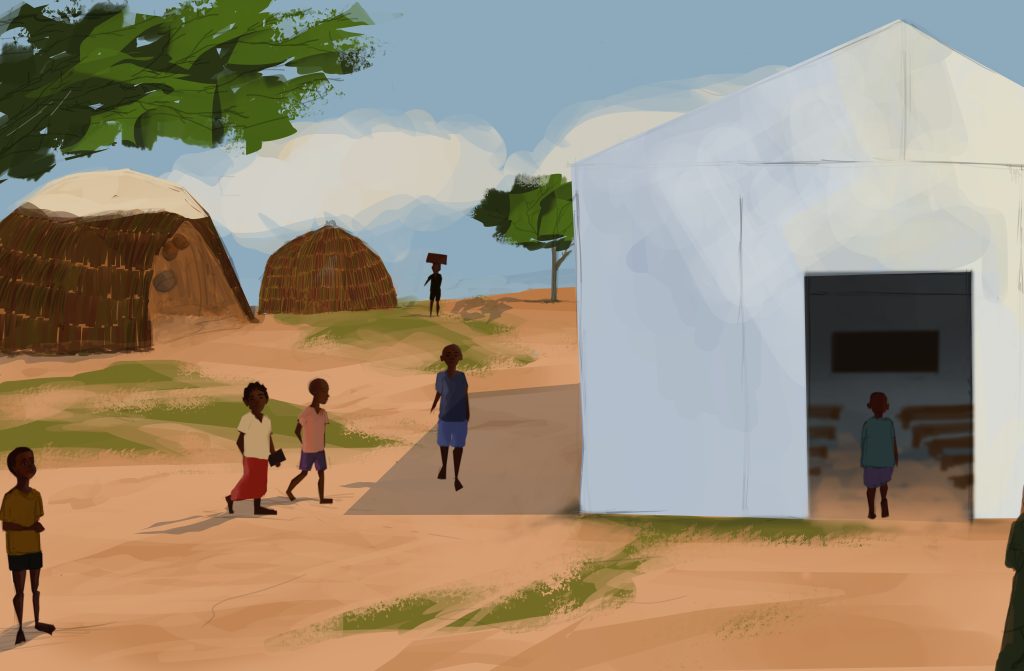
Assessing The Availability of Mobile Education in Nyangatom District
Research by Kappa Edjem, Lochomin Lojime Lomong and Lokom Lokitibo
The aim of this project was to analyse the factors affecting children’s ability to attend school in South Omo Nyangatom district and to provide practical recommendations for developing a sustainable education system. Many Nyangatom families are nomadic, residing in mobile cattle camps that migrate several times a year searching for grazing and water for their animals. The chance for children to attend school in the cattle camp is very low compared to the permanently residential area like Kebeles. The provision of mobile education in South Omo would allow Nyangatom children to attend schools and become educated while living close to their families. A film describes project findings.
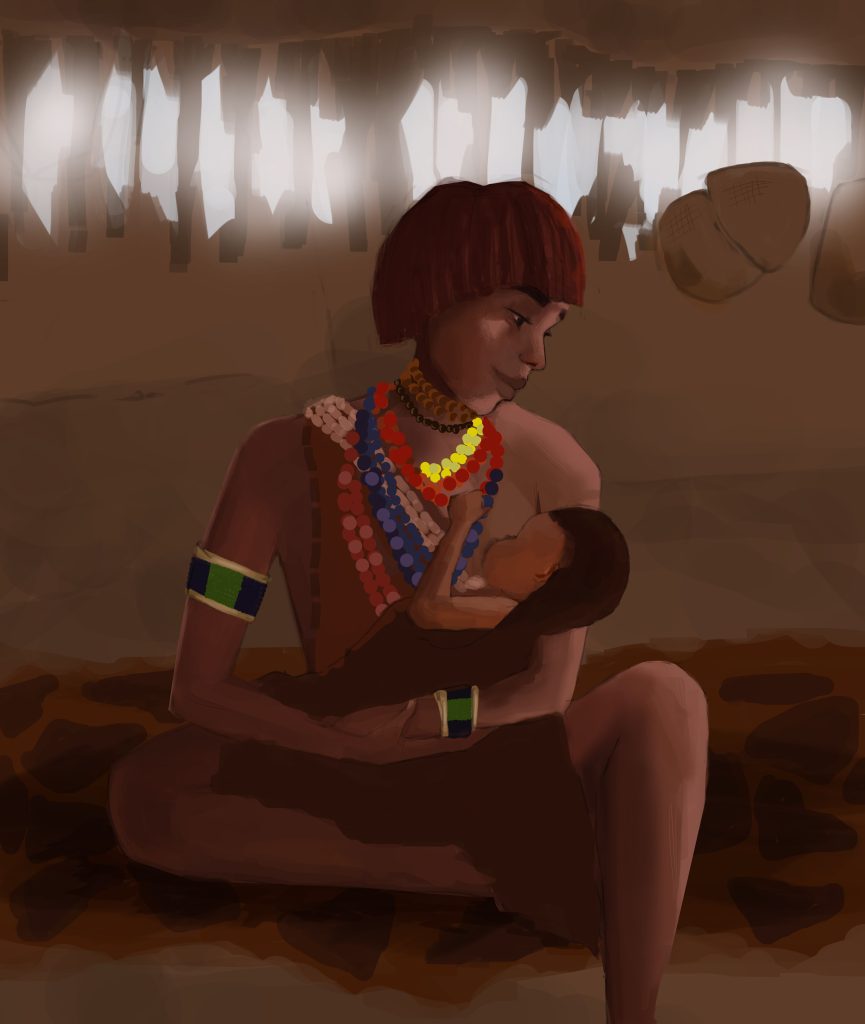
Post-natal health care in Hamer Woreda
Research by Kari Wancho, Gyoti Wancho and Bethlehem Atnafu
Mothers and their newborns are vulnerable to illnesses and death during the postnatal period – more than half a million women die each year of causes related to pregnancy and childbirth. Using questionaries and focus group discussions, Midwife Kari Wancho led a project to assess knowledge of postnatal care services in Hammer District and to develop recommendations for supporting mothers and babies in South Omo Zone
Livestock market in Nyangatom Woreda
Research by Lolar Lorogoy Edoing and Lorogoy Lokuru.
In Nyangatom Woreda there is one large town and one primary market – Kangaten. For agro-pastoralists living in the woreda this means travelling up to 200km to trade their livestock. This research project investigated when herders took their animals to market, what factors dictated decisions to sell, how prices were determined, and the difficulties they faced in travelling large distances to reach the market.
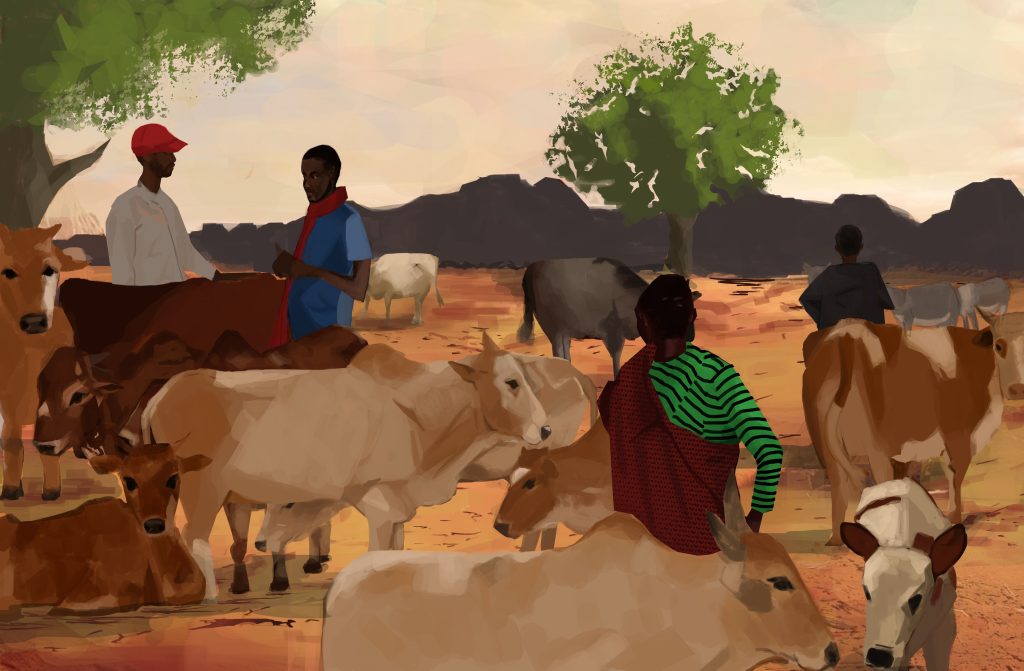
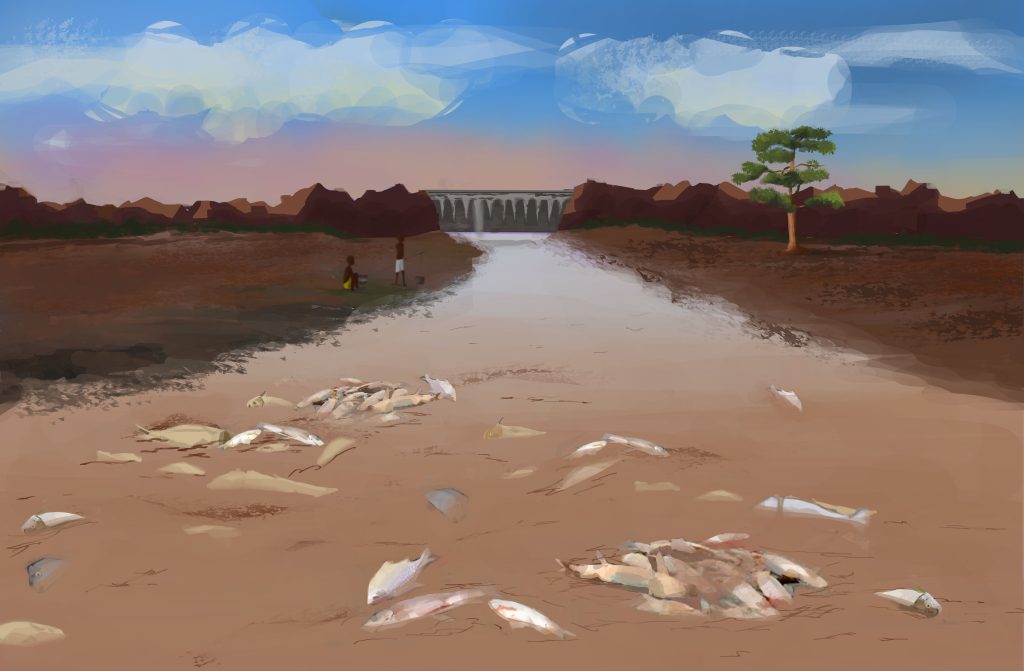
Cause and consequences of mass fish mortality in the Lower Omo River
Research by Dr Getachew Mulugeta, Mahider Tesfaye and Mekete Girma.
The Omo River is a key fish source to the lower Omo valley, but recurring mass fish mortality in the Lower Omo-Turkana Basin poses serious socio-economic and cultural challenges. This study assessed fish mortality and consumption status in South Omo Zone, Ethiopia. Community perception of fish mortality assigned the cause to water pollution combined with changes in water quality manifested in changes in temperature and flow. The findings reveal a complex crisis requiring collaborative solutions. The common fish death areas should be delineated so that the effects on fish species, flora and fauna can be studies thoroughly to identify the exact effects and burdens exerted on the lower Omo River and Lake Turkana.
The practice of single-testicle goat castration in Nyangatom Woreda
Research by Mekete Girma, Hussien Siraj and Mahider Tesfaye.
With more than one million goats in Nyangatom Woreda, the animal plays a major role in pastoralists’ livelihood strategies. Local belief suggests that the practice of single-testicle castrations of male goats promotes the birth of female kids that are preferred due to the reliance on milk production and for herd expansion. This project was the first to scientifically investigate this claim and to assess the biological impacts of one-testicle castration on goat fertility, health, and overall reproductive performance.
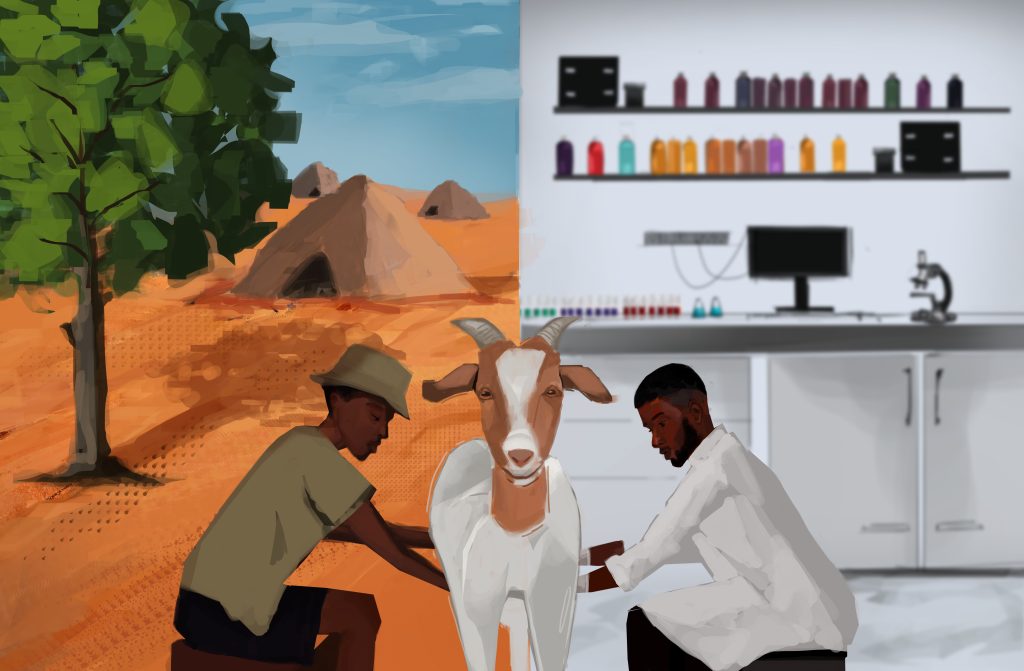
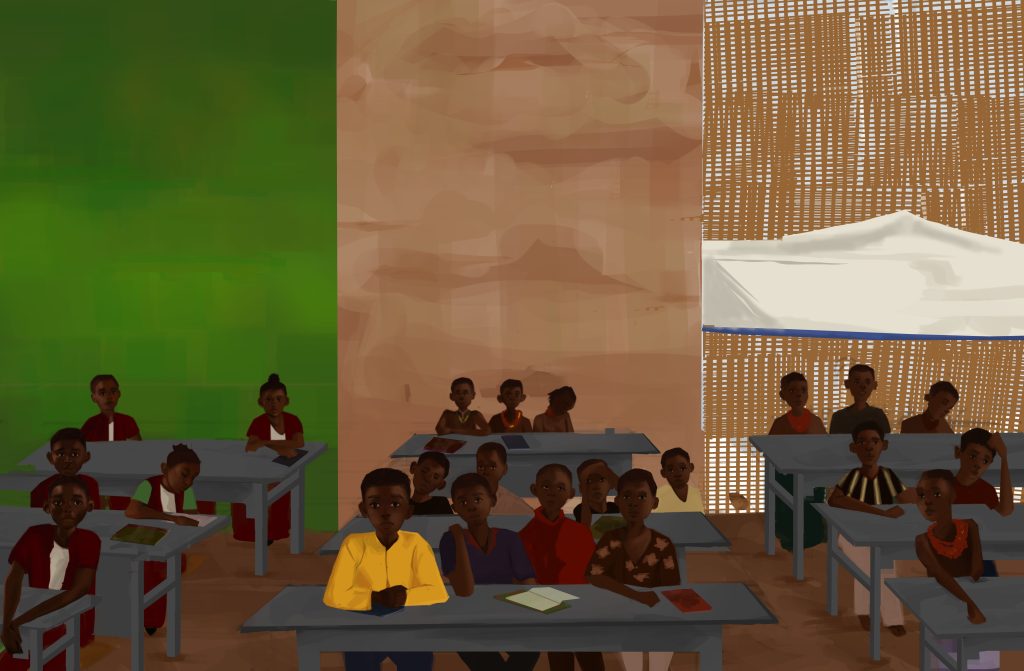
Education provision in Bena-Tsemay, Dasenech and Maale woredas
Research led by Mohammed Sule Issak with Mr Minwagaw, Mr Mesfin and Mr Ayannamw.
Education is essential to life and the key to progress for individuals as well as society. Research by a team led by Mohammed Sule of Jinka University compared access to education among agro-pastoralist communities in three woredas of South Omo Zone – Dasenech in the south-west, Bena-Tsemay in the centre and Malle in the north. Their findings identity agro-pastoralist communities of South Omo Zone as amongst the most underserved and underprivileged groups in Ethiopia in terms of educational opportunities. A report documents project findings.
